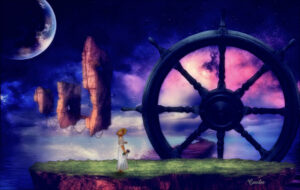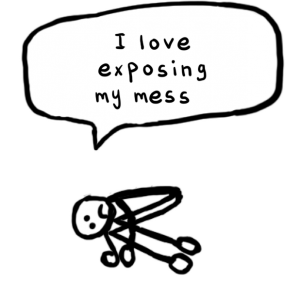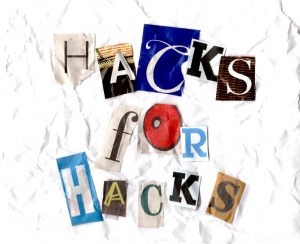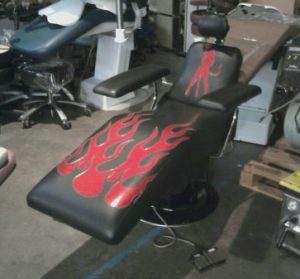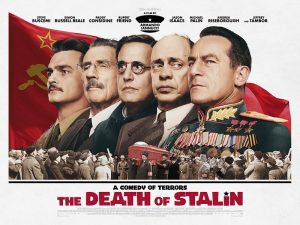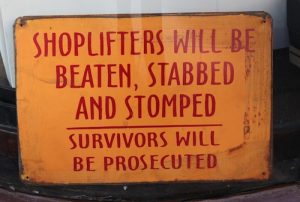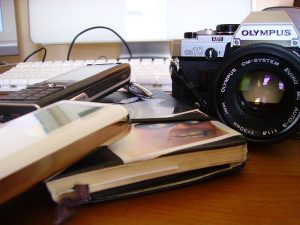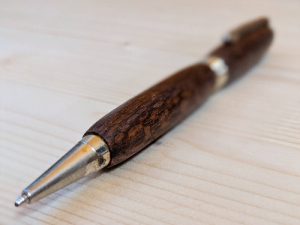Humor
Warning: Hacks for Hacks tips may have harmful side effects on your writing career, and should not be used by minors, adults, writers, poets, scribes, scriveners, journalists, or anybody.
So you want to be a writer? Maybe you can string together a few good sentences, but good prose can take you only so far. Your daily routine can can affect your writing career just as much (or more!) as the words you type. Set yourself up for literary success by developing these writing habits.
Write every day. The more you write, the better you’ll get.
Go to a prestigious creative writing program. These programs are competitive and costly, but you’ll get to hone your craft and make connections that will benefit you your life long.
Get rich and famous before you start writing. Having the finances and social capital to quit your job will free up so much of your mental energy. Having the financial freedom to take exotic vacations and party like it’s 1999 will give you so many stories to tell.
Cultivate a love of reading when you’re still a child. This one will be more difficult for those of us who are already adults, but some of the best writing advice I’ve ever gotten was that if something is important to you, you’ll figure out a way to make it happen. If you first fell in love with the written word when you were ten, see if you can make it happen by age nine.
Have at least one parent who is a successful author. Our parents are our first mentors, teaching us life lessons and passing on the benefits of their wisdom without the pain of their mistakes. If your parents are famous authors themselves, that will give you a huge advantage in your own career. Talk to your folks about their literary aspirations and see if they’d consider changing careers from motel manager or retiree to having been a literary darling since age twenty-six.
Read More*sense of humor required
Warning: Hacks for Hacks tips may have harmful side effects on your writing career, and should not be used by minors, adults, writers, poets, scribes, scriveners, journalists, or anybody.
Writers, like diamonds, sparkle under pressure. Without pressure? They’re just lumps of coal, best known for being set on fire or given to brats at Christmastime. Writers need deadlines the way Dr. Frankenstein needs electricity—it takes a dangerous outside force to inject life into our abominable creations.
The power of the deadline is at the root of the Hack’s Paradox: You have no deadlines because you haven’t sold your book, but how can you sell your book if you don’t have deadlines to motivate you? (Please note that if you HAVE sold your book without finishing it, you are not a true hack, in which case why are you reading this column?)
It can be tough to motivate yourself when you have no external deadlines. Pressure is what transforms a generic ham sandwich on white bread into a fancy and delicious panini that costs $9.95. If your writing career is withering under the tyranny of a peaceful and balanced lifestyle, this column will help you inject some much-needed stress and anxiety into your writing process.
Set an arbitrary deadline. Just give yourself a due date. In his seminal book on writing, On Writing, Stephen King says you should try to finish a book draft in like three months or so (I’m too lazy to look it up, and too temperamental to be corrected, so if I’m wrong, please keep it to yourself). Mark your calendar for three months from today and make that your goal. Will it work? It might, but based on the fact that you’re reading this column right now, I’m betting it won’t. It sounds plausible enough, though, and I’m on a deadline to write this column, so I’m leaving it in.
Reward yourself. Give yourself a treat for finally writing “THE END” in your draft, whether that’s a fancy meal, a nice bottle of something or other, or a new book you want to read. Never underestimate the power of holding life’s small pleasures for ransom from yourself.
Find an accountability buddy. Why should you suffer alone? Find someone in your writing group who needs both outside motivation and the visceral thrill of laughing in your face if you don’t finish your book on time. This sort of positive peer pressure can be very helpful, and it also provides you with someone to drink and commiserate with if and when neither of you are able to finish a draft.
Read MoreDays before my paperback launch, my publisher called me in a panic. “Where are your blurbs? You were supposed to submit all new blurbs for the paperback release!”
“No one told me,” I sputtered. Apparently, I wasn’t allowed to reuse the blurbs from my hardcover edition, but I didn’t know. I didn’t know! My pulse quickened and I tried to catch my breath.
“Well, it’s too late now.” Her voice dripped with rage and, even worse, disappointment in me. “It’s going to press with nothing on the cover.”
I tried to speak, but the words would not form. Sweat poured down my face and back. My paperback would surely flop. Who would buy a book with nothing on the cover? My writing career was doomed.
Then I woke up, shaken and sweaty, but oh, so relieved.
It was just a dream.
A wave of relief washed over me as I remembered my paperback doesn’t launch for nine months. I buried my head in my pillow and tried, without success, to go back to sleep.
My writer brain has been in high gear these last few months as I launched my debut novel Waiting for the Night Song. Bookstore events, interviews, Q&As. I’m also working on deadline for my second book. These are good problems to have, but I constantly feel like I’m about to forget something big. That fear manifested into my blurbless paperback dream, which may sound silly, but it really rattled me.
The morning after, I shared my dream with writer friend Sarah Penner (The Lost Apothecary,) who then told me about her dream from the night before. She dreamed that our mutual friend Nancy Johnson (The Kindest Lie) had sent her a new manuscript to beta read. Sarah panicked because she didn’t have time to read Nancy’s book, but Sarah didn’t want to let Nancy down. Sarah, who is working on her own new manuscript, enviously wondered how Nancy could have possibly finished writing a book that she just started working on.
I don’t have any credentials in dream interpretation, but I’m guessing Sarah, like me, was feeling crunched for time, worried about forgetting something, and guilty for not being able to get to everything in a timely manner. And, of course, we always have our eyes on someone else’s paper.
I checked in with some other writer friends and have developed a theory that our brains keep writing (or at least think about writing) when we go to sleep. The resulting dreams usually fall into one of three categories: The Stress Dream, The Flash-of-Brilliance Dream, or the Living-in-Your-Book Dream.
The Stress Dream
Based on my very unscientific poll of some writer friends, the Stress Dream seems to be the most common, which doesn’t surprise me. Writers tend to be high-strung, deep thinkers. We internalize fears and anxieties and stew on them, even while we sleep.
Read More* sense of humor required
Warning: Hacks for Hacks tips may have harmful side effects on your writing career, and should not be used by minors, adults, writers, poets, scribes, scriveners, journalists, or anybody.
Happy Quarantiniversary! Time flies, does it not? Now we’re one year into the pandemic, and many of you reading this have already been vaccinated. It’s time to celebrate not just the prospect of life returning to normal, but also your forthcoming literary success. When all this nonsense started, writers everywhere said, “This sucks, but at least I’ll have more time to write.” A whole year has gone by, and based on how much extra writing time you had, you must be putting the finishing touches on your novel, right? Right?!
Let me remind you of my advice from a year ago:
They say Shakespeare wrote King Lear during the plague. This is not inspirational; this is the baseline. Shakespeare didn’t have wifi. With the tools you have at your disposal, and with the abject terror you have as motivation, you should expect nothing less of yourself than to create an artistic masterpiece that high school English students will write formulaic essays about for the next several hundred years.
And now that you’ve put in all that hard work for the last twelve months, you get to reap the rewards. It must feel good, after a year of wondering whether you will live or die, to know that you at least have an artistic triumph to show for it. I mean, how bad would you feel if you hadn’t finished your book? It’s a good thing you’ve used all of this extra time at home wisely! Had you not done that, why, that would be enough of a failure to cause a full-blown existential crisis! Ha ha!
So the last time I posted a video on Writer Unboxed, I talked up bathing in the unknown. And it got me thinking, even if the unknown is a powerful place, what’s next? For me, after some bathing, I like to figure out what I’ve got on my hands. (Yeah, I know, the bathing metaphor just fell apart…) And the most effective way I know to make it more known… is by seeing how it affects other people. These people need to be trusted people, especially at this early phase, because the material is raw and messy and I’m probably feeling vulnerable. Even so, seeing (or more like: feeling) another person’s response is critical for me to take the story to the next phase.
Look, I know plenty of writers who don’t require others to create something powerful. But not me, I need to listen for when the reader (or listener) laughs or sighs or gasps or holds their breath. And then, I can better understand what the hell I’m writing. That’s when I find out that my story I thought was about all the crazy bus routes in Portland is really about one lonely man’s longing to connect with another person. Or how my Darth Vader story is really a story about the challenges of step parenting. Or how there are already enough think pieces about Bojack Horseman. (OK, just kidding about that last one. Don’t get me wrong, I’m a sucker for think pieces about Bojack, but I haven’t actually written one myself yet… The other examples are actually true.)
My whole process is really just a back and forth between time alone with my writing and time learning how others respond to the writing. But this first step from the unknown to the… slightly-more-known is my favorite phase (even if it’s also the scariest).
Here’s the video I made about this subject:
What about you? Do you have trusted readers who help you along the writing journey? Are you comfortable exposing your mess?
Warning: Hacks for Hacks tips may have harmful side effects on your writing career, and should not be used by minors, adults, writers, poets, scribes, scriveners, journalists, or anybody.
It seems like only yesterday you woke up with an idea. That idea metastasized in your mind into something grander, something that screamed to be written down lest it sit and fester inside your brain a moment longer. Each day, your book ruled your life, either by cracking the whip as you sat at your writing desk, or haunting you like a phantom on the days you dared take time to relax. You skipped parties, blew off friends, and alienated your family in service to your craft until one day you finally finished the book. After all that work, you’ve earned a small slice of cake!
Obviously, the ultimate reward for any author is to have your book turned into a prestige TV series. When does that day come, though? Writing is, at its core, an exercise in delayed gratification, with wide variation in the length of that delay and the quality of that gratification. Even the fastest writer can spend months pouring their heart and soul into a book that can be consumed in a matter of hours—a ratio that is, at best, a meditation on the nature of art, and at worst, an outright scam. For many writers, “After my book is finished…” has the same energy as “When the pandemic is over…” and “When Daddy gets back from the store with cigarettes…” When writing success always seems just over the horizon in perpetuity, it’s up to you to reward yourself for finishing a draft, a chapter, a single page if that’s what you need to keep going.
To tide you over until you sign your big publishing deal, here are a few ways you can reward yourself for meeting your writing goals.
Warning: Hacks for Hacks tips may have harmful side effects on your writing career, and should not be used by minors, adults, writers, poets, scribes, scriveners, journalists, or anybody.
Happy 2021! Now that the longest year in history is over, it’s a good time for reflection and taking stock of things. And by “things” I mean those Christmas and/or Hanukkah gifts you got. If you’re a writer, you probably got a lot of writing-centric gifts. I’m going to say it so you don’t have to: some writer gifts are better than others. (I know, you don’t want to seem ungrateful, but another coffee mug? Really?!)
If Santa decided to go off-list for you, take heart that even the worst Christmas gift for you may be a reasonably serviceable birthday gift for someone else. That’s right, we’re talking about the greatest of holiday taboos: regifting. Some may frown on it, but a properly executed regifting prevents waste and saves you a trip to the store, which is more important than ever during a pandemic, so really you’re doing everybody a favor. The 2021 Regifting Guide for Writers will help you decide what to keep, what to give away, and how to do it without looking like a jerk.
Let the foisting begin!
Read More
This summer, I decided I needed some new audio books to help occupy my brain during the long daily walks my cardiologist ordered me to take. I’d been rotating between a couple of good recordings of the Tao Te Ching and Chuck Palahniuk’s excellent Consider This (about which I raved in my previous WU post), but it was time for something new. While I find significant value in repeatedly listening to particularly good nonfiction audio books, I was hungry for some actual storytelling. More importantly, I wanted a story that would LAST, ideally through many hours of walking. Ultimately I wound up going with Herman Melville’s classic, Moby-Dick.
It seemed an ideal choice, for a couple of reasons. First and foremost, it’s long. Seriously long. With a word count that exceeds 200,000, most unabridged audio versions of Moby-Dick are 25 hours long or more, depending on the speed of the narrator.
And that brings up another consideration: I wanted a good narrator, if I was going to be spending so much time with him or her. Because the book is in the public domain and very popular, there is a wide range of recorded versions, so I “auditioned” a dozen or so samples before deciding on this excellent audio book narrated by Anthony Heald. After spending many hours with Heald in my head (so to speak), I’m convinced I made the right decision: He does an utterly marvelous job capturing the many moods of Melville.
I said I had two reasons for choosing this book, so now I’ll confess the main one: I’ve never actually read Moby-Dick. I thought I had – I mean, weren’t we all forced to struggle through it in high school English? – but once I looked at the first chapter, I realized it didn’t ring a bell at all. For one thing, within just the opening pages I encountered a cynicism and wit that I never would have associated with Melville, whom I assumed was all biblical furrowed-brow doom-and-gloom, all the time. I quickly realized that while I may have read about the book – and as a kid I loved the classic movie starring Gregory Peck – I’d never actually read the original book. This is a sensitive point for me, reminding me what a large gap there is in my cultural literacy, as I have read embarrassingly few of the commonly accepted “classic” books. So when the spirit moves me, I try to address that gap, one book at a time.
Ready to commence my journey with Ishmael and company, I began huffing and puffing my way around the neighborhood with my earbuds delivering Heald’s spectacular narration. Within half an hour, one thing was very clear to me: I didn’t know Dick. Moby-Dick, that is.
This was nothing like the book I’d anticipated. Melville’s voice (particularly as transmitted by Heald) was clever, witty and even… I struggled to find the word… whimsical at times. Definitely not the word I’d expect to use about the guy who gave us Ahab, that dark-and-stormy one-legged sea captain […]
Read More*sense of humor required
Warning: Hacks for Hacks tips may have harmful side effects on your writing career, and should not be used by minors, adults, writers, poets, scribes, scriveners, journalists, or anybody.
You can’t help but underestimate chairs, as they are literally under you. Since you’ll be doing almost all of your writing while sitting down, though, a chair is perhaps the most important component to your writing routine next to pens. A bad chair can cause you give up after an hour due to butt or back aches, but a chair that’s too comfy might cause you to skip writing and take a nap. The right chair can be worth its weight in gold, literally—some fancy office chairs cost a thousand dollars! But you don’t have to take out a second mortgage to find a chair that suits your needs. In this month’s Hacks for Hacks column, we’ll look at the best chairs for you and your writing style.
A chair at the kitchen table. Simple. Classic. Maybe a little wobbly. But sometimes the old reliable option is the best one.
Your desk chair in your home office. If you already have a home office, this is a no-brainer. And if you’re lucky enough to have a job where you can work from home, you don’t even have to commute, ha ha. Between work responsibilities and your writing, you could spend nearly every waking hour in that chair! Doesn’t that sound great?
Your couch. You know you’re probably wreaking havoc on your posture, but writing whilst reclining on the couch is just so comfortable. And it offers a great view of the television your laptop.
A car. This sounds ridiculous, but it makes more sense than spending a thousand bucks on a fancy office chair. Plus the sound system is better. For improved productivity, though, don’t write while driving. Have someone else drive you instead.
A park bench. A wooden bench isn’t the most comfortable seat for long periods of time, but the scenery and fresh air are second to none. Of course, the October chill is setting in, and we’ve still got this pandemic on, so you probably can’t do this one for five or six months at least. Sorry :(
The chair you made as a woodworking project. Don’t you feel accomplished for completing this? Writing involves so much time at a computer creating digital artifacts, isn’t it satisfying to create a tangible object with your own hands? You often think about this chair while you’re writing on the couch, as this one is too uncomfortable to actually sit on.
Your chair at work. Nothing like banging out a few hundred words during your lunch break. Carving out a few minutes from your workday to write feels almost subversive, does it not? Your chair at the office is way nicer than anything you could afford for yourself. It’s even got wheels and spins around. Whee!
Read MoreDeath of Stalin poster by mwmbwls
Given recent political events, the film The Death of Stalin has been very much in the public mind. It’s a particularly brilliant black comedy, courtesy of Armando Ianucci, who is also responsible for other ingenious, politically-premised black comedies such as the film In the Loop and the TV series Veep and The Thick of It, as well as the sci-fi-inflected Avenue 5, which takes on the imaginable absurdities of luxury-liner space travel (should such a ghastly thing ever come to pass).
It may be that current events—characterized by an overwhelming sense that something fundamental has gone very wrong, with blame often placed on failing institutions—make black comedy a particularly apt genre for the moment. But what is it, exactly?
It’s been my experience that black comedy is a genre often defined more by “I know it when I see it” than any reliable set of conventions or guidelines. And yet I find that what most people think of as black comedy is anything that is darkly comic—including farce and satire as well as much of noir and hard-boiled crime that possesses a tinge of black humor—which is woefully imprecise, especially for writers.
For example, though the Catholic Herald deemed John Michael McDonagh’s Calvary a “jet black comedy,” I think the following discussion will reveal it’s not at all. (I will return to it below.) Rather, it’s a poignant drama laced with bleak Irish wit.
Genres serve a purpose. They establish certain conventions the writer and reader/audience both recognize as the rules of the highway—with the understanding that often the best part of the journey happens off-road. And some byways, existing in a no man’s land claimed by two or more genres, often provide the most surprising jaunts of all.
That said, I thought I’d use this month’s post to try to clear up some of the definitional confusion surrounding black comedy, since it may well be that it becomes a genre of not just current but continuing appeal, and some of us may want to try our hand at it. (I’m doing so in my current WIP, for example, depicting a dystopian future in terms of the oppressive systems that survived the great crisis.) If so, it’s best we learn a few of the aforementioned rules of the road.
A good working definition of the genre can be found in John Truby’s The Anatomy of Story.
Read MoreRemember when you were in high school and you told your mom you were going to Susie Straightlace’s house to study but you really went to Rachel Riskwhisker’s rager where you drank so much Grape Crush and vodka you had to crawl home with one eye shut and you peeked in your living room window to see if your mom was still up and you saw that she had removed her glowing, rutabaga-shaped brain from its cranial case and was recharging it with what you had once thought was a giant electric razor and you realized that she was an alien overlord?
I don’t, because that’s your memory, not mine. But gollyjeepers, I’ve got some doozies. (To be clear though, my mom was an angel.) Me, I had a tidy little enterprise in my high school years and beyond: professional shoplifter. I say “professional” because I ascended the ladder of five-finger skills through enterprise and gall, and because I sold the goods I lifted to high school acquaintances. Satan whispered in my ear a lot those days.
Well, I sold some of the goods–the significant amounts of liquor I stole were consumed by me and my cronies. Many of those were quaffed in the name of science, since items like blueberry schnapps and MD (Mad Dog) 20-20 “wine” weren’t actually meant to be ingested—by humans at least. And I was the guy who did steal Abbie Hoffman’s Steal This Book when it came out—Abbie, you asked for it.
Confessional memoirs have possibly peaked in popularity, but I’m always late to the party, so I recently wrote one. I have written essays over time about the impossibly poor judgment I had as a lad, but I hadn’t thought about writing a memoir until I was editing one for a client, hers being a 140,000-word composition about her years as a marketing executive in the senior care industry.
Part cautionary tale, part horror story about the dark side of aging, part song of friendship, part instructional on best and more humane industry practices, hers is a funny, sad, sharp and scary volume. Working with her on it made me realize that I could shape my misdeeds into a book, and at the least, terrify the parents of high schoolers who think their charges are studying at Susie’s.
Read MoreWarning: Hacks for Hacks tips may have harmful side effects on your writing career, and should not be used by minors, adults, writers, poets, scribes, scriveners, journalists, or anybody.
Raise your hand if you’re still managing to meet your writing goals during a global pandemic.
Ha! Trick question! If you were really writing, both hands would still be on your keyboard. And you know what? That’s okay! It’s hard to find the mental energy to create when so much of it is consumed by work, social distancing, missing friends and loved ones, keeping kids safe during the new school year, and just trying to stay alive. If you’re stressing about your writing career, go easy on yourself—you’re already doing a lot more than you think. A lot of your daily tasks are perfectly valid parts of the writing process. Don’t believe me? Let’s review a few everyday tasks that totally count as writing time.
Prewriting
Brainstorming
At the beginning of 2020 (which must be about 40 or 50 months ago, right?), I stumbled onto a book that literally changed how I think about writing. During an email exchange with my dear friend and fellow writer Jocosa Wade, she recommended an early novel by Chuck Palahniuk, whom I only knew as the guy who had written Fight Club.
I loved the movie by the same name, but had never read any of his novels. To be honest, I’d always been a little afraid to read him, figuring he would be way too hip, dark and cynical for me. But Jocosa convinced me it was time to take the Palahniuk plunge.
Being a perennially cheap bastard, I hit the public library. Yes, this was back in that gilded age when I would still do things like a) leave the house, b) go to a public library – or any other public place, and c) actually touch books – or anything else that other people had likely touched. Ah, such sweet pre-Covid memories!
In searching the library’s catalog, I noticed Palahniuk had just released a new nonfiction book: a writing how-to called Consider This. The book had just come out that month, but to my amazement my local library system already had a few copies, so I nabbed one. My three-word review is below:
DAMN, it’s good.
Seriously, after just the first two chapters, I put the book down and got on the computer to order my own copy for my Kindle, so I could begin taking notes in it. Yeah, it’s that good. The thoughts and ideas Palahniuk shares are clearly stated and directly actionable, not pie-in-the-sky theoretical stuff. And he has such a unique way of looking at some of the most basic components and mechanics of storytelling, which he explains in ways that immediately make sense.
I’ve read a TON of writing how-to’s (it literally is my idea of a good time on a wild Friday night), and it’s been impossible not to notice that many of them are expressing VERY similar ideas. Not Chuck. He looks at writing in some ways that are completely new to me. And he’s a marvelous teacher.
For example, Chuck suggests that we incorporate these three elements in our storytelling: description, instruction, and either exclamation or onomatopoeia.
Instruction? Onomatopoeia? Wait, what? Here’s how Palahniuk clarifies this directive:
Most fiction consists of only description, but good storytelling can mix all three forms. For instance, “A man walks into a bar and orders a margarita. Simple enough. Mix three parts tequila and two parts triple sec with one part lime juice, pour it over ice, and—voilà—that’s a margarita.”
Using all three forms of communication creates a natural, conversational style. Description combined with occasional instruction and punctuated with sound effects or exclamations: It’s how people talk.
Throughout the book, Palahniuk repeatedly touches on tangible, nuts-and-bolts aspects of writing in ways I have never before seen discussed.
Read More*sense of humor required
Warning: Hacks for Hacks tips may have harmful side effects on your writing career, and should not be used by minors, adults, writers, poets, scribes, scriveners, journalists, or anybody.
Like cameras, umbrellas, and getaway cars, the best pen is the one you have with you. We writers tend to have a dozen pens with us at any given time, though—when the muse comes to you and whispers profundity into your ear, which pen do you grab to write your masterpiece? This month, the Hacks for Hacks team looked at hundreds of pens, from ball points to gels to smear-resistant models for lefties. Using our scientific rating criteria, we ranked the best pens available.



